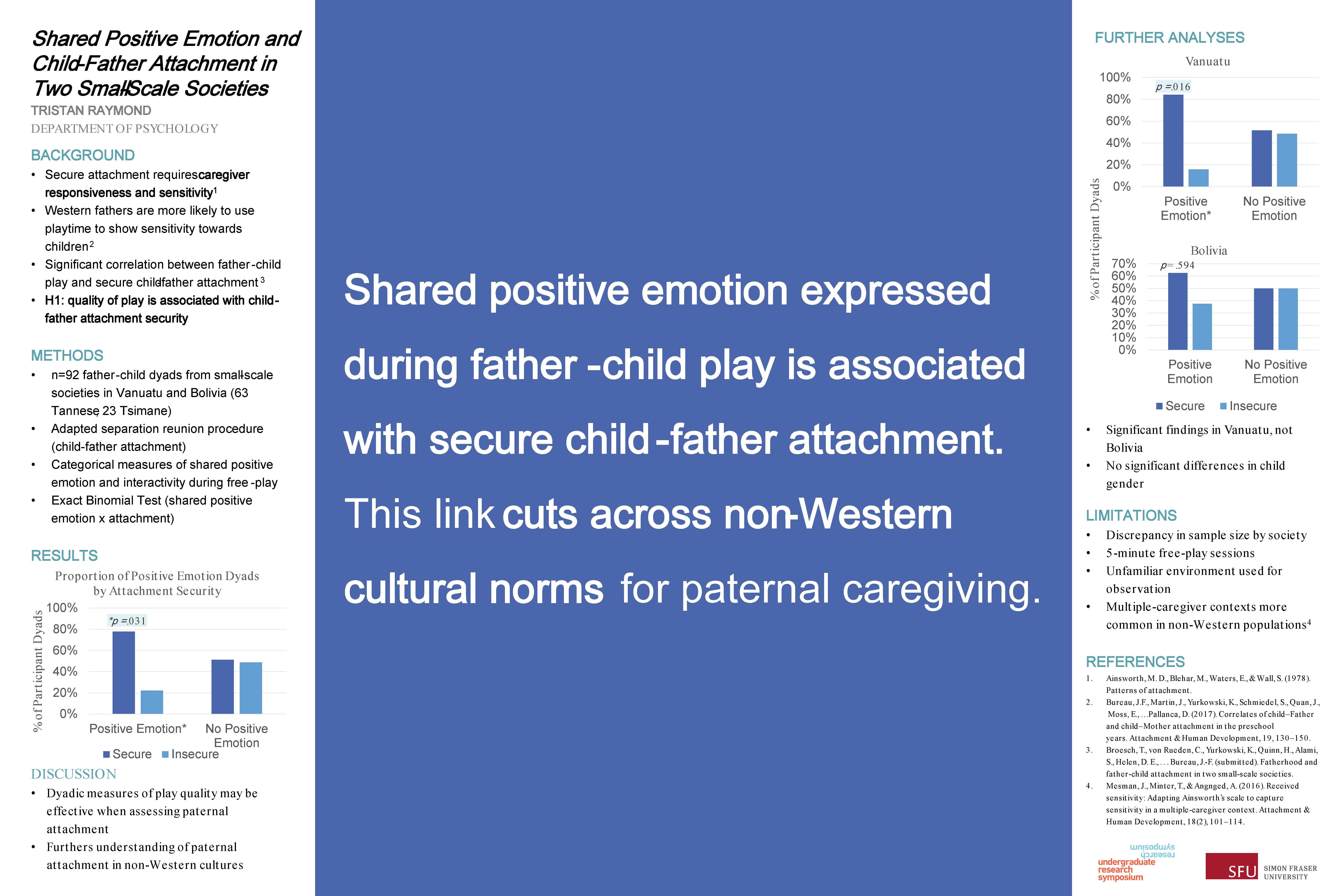Shared Positive Emotions and Child-Father Attachment in Two Small-Scale Societies
Main Article Content
Abstract
Fathers are more likely than mothers to use play time as a means of expressing sensitivity towards their infants and toddlers, which is associated with secure child-father attachment and children’s normative social and emotional development. However, this finding has only been observed in Western contexts, warranting further exploration into the role of father-child play as a correlate of secure child-father attachment in non-Western cultures. The current investigation examines secondary observational data collected from two small-scale societies in Bolivia and Vanuatu, where mothers’ reports of father-child play was a significant predictor of child-father attachment security. This study conceptualizes shared positive emotion as a form of paternal sensitivity to determine a potential relationship between quality of child-father play and child-father attachment security. Participants included 92 father-child dyads (63 Tannese, 29 Tsimane). Results indicate a significant association between dyads expressing positive shared emotion (IPE: interactive, positive emotion) and child-father attachment security. When stratifying by society, this association was found in the Vanuatu sample, but not Bolivia. Close inspection indicates that there is a trend in Bolivia. Findings support claims of paternal sensitivity in playful contexts as a culturally universal correlate of child-father attachment security at the infant and toddler age. This study provides insight into behavioural correlates of attachment security within populations virtually unrepresented within child-father attachment literature.
Faculty Supervisor: Dr. Tanya Broesch, Department of Psychology, Simon Fraser University
Article Details

This work is licensed under a Creative Commons Attribution-NonCommercial-NoDerivatives 4.0 International License.

